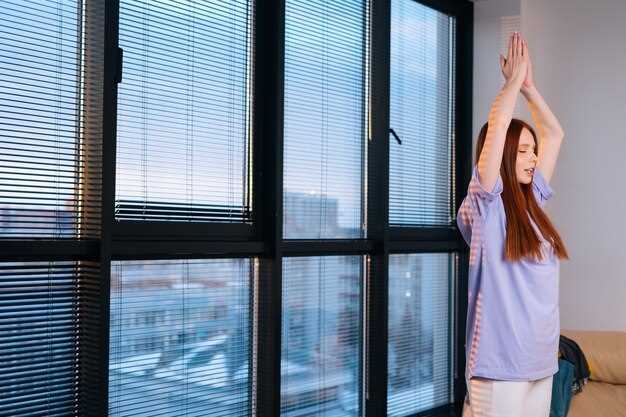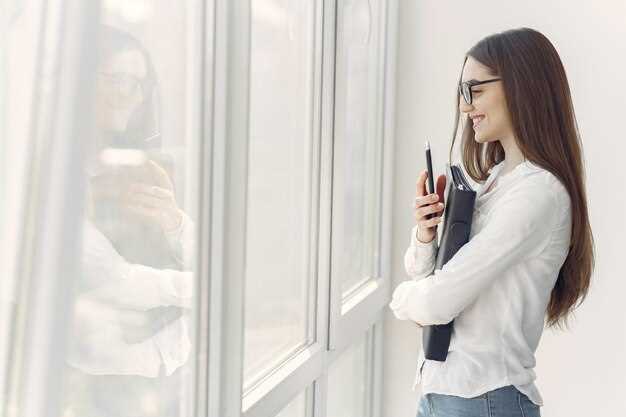
Tinted windows have become an essential feature for many vehicle owners and homeowners alike. The benefits of adding a tint to your windows extend far beyond aesthetics. One of the most significant advantages is the enhanced protection it offers against harmful UV rays. These rays can cause extensive damage to the interior surfaces of a car or home, leading to fading, cracking, and deterioration over time.
By opting for tinted windows, you can significantly reduce the amount of UV radiation that enters your space. This not only helps preserve the condition of your furniture, fabrics, and flooring but also contributes to a more comfortable indoor environment. With reduced glare and heat, tinted windows help maintain a balanced temperature, making your living spaces more pleasant and energy-efficient.
Moreover, the protective benefits of tinted windows contribute to the longevity of your interior investments. For those who value their possessions and seek to maintain the integrity of their living spaces, tinted windows represent a practical solution that combines form and function, ensuring that interiors remain vibrant and well-preserved for years to come.
How Tinted Windows Block Harmful UV Rays
Tinted windows are designed not only for aesthetic appeal but also for their functional benefits, particularly in blocking harmful ultraviolet (UV) rays. UV radiation, which comes from the sun, is a significant cause of skin damage and can also fade the interior of vehicles and buildings.
One of the primary advantages of window tint is its ability to reduce UV exposure. Most quality window films can block up to 99% of UV rays, offering a protective barrier that keeps both people and interiors safe from sun damage. This effective reduction in UV rays is crucial in preventing skin-related issues, such as sunburn or long-term skin conditions.
The tint applied to the windows absorbs and reflects these harmful rays. By using specialized materials that have been engineered for optimal UV protection, window films prevent harmful radiation from entering a space. This absorption minimizes fading of furniture, carpets, and artwork, preserving the aesthetic quality of interiors.
In addition to blocking UV rays, tinted windows can improve comfort by regulating the amount of heat that enters a vehicle or room. This can lead to savings on energy costs by reducing the reliance on air conditioning systems. Overall, tinted windows serve as a smart investment for those looking to enhance their indoor environments while ensuring protection from the detrimental effects of UV rays.
Impact of Window Tint on Fading of Interior Furnishings
Window tint serves as an effective barrier against harmful UV rays, which are a leading cause of fading in interior furnishings. When sunlight enters a space, it can cause colors to fade and materials to degrade over time. By applying a quality tint to windows, homeowners can significantly reduce the amount of UV radiation that penetrates their interiors.
The protective qualities of window tint extend to various types of furnishings, including upholstery, carpets, and wooden surfaces. Fabrics can lose their vibrancy and elasticity when exposed to direct sunlight, while wood can become discolored and brittle. By blocking up to 99% of UV rays, tinted windows help maintain the original appearance and integrity of these materials.
Additionally, window tint can contribute to a more stable indoor environment. Fluctuations in temperature and light can accelerate the fading process, but tinted windows regulate heat and reduce glare, creating a more consistent atmosphere. This stability further protects furnishings from the adverse effects of UV exposure, prolonging their lifespan.
Overall, the impact of window tint on fading of interior furnishings is significant. By investing in window tinting, homeowners not only enhance aesthetic appeal but also preserve the quality and durability of their interiors over time.
Heat Reduction: Benefits of Tinted Windows in Warmer Climates

In warmer climates, excessive heat can lead to discomfort inside buildings and vehicles. Tinted windows provide an effective solution to mitigate this issue. The application of a specialized tint can significantly reduce the amount of heat that enters a space, enhancing overall comfort levels.
Through heat reduction, tinted windows provide several advantages. Firstly, they block a substantial percentage of solar radiation, which not only lowers indoor temperatures but also minimizes reliance on air conditioning systems. This can lead to considerable energy savings over time, as cooling costs are reduced.
Secondly, tinted windows enhance privacy without compromising natural light. By allowing sunlight to enter while filtering its intensity, they create a more pleasant interior environment. Additionally, the reduction of glare aids in better visibility, making spaces more functional.
Furthermore, the benefit of UV protection cannot be overlooked. Tinted windows shield occupants from harmful ultraviolet rays, which can cause skin damage and fade interior furnishings. This protective feature helps in maintaining the longevity of both human health and home decor.
| Benefit | Description |
|---|---|
| Solar Heat Absorption | Tinted windows absorb and block a significant amount of solar heat, keeping interiors cooler. |
| Energy Efficiency | Lower reliance on air conditioning results in reduced energy consumption and costs. |
| Glare Reduction | Minimized glare leads to improved visibility and comfort in daily activities. |
| UV Protection | Protects against harmful UV rays, preserving skin health and preventing fading of materials. |
Overall, the benefits of window tinting in warmer climates are numerous and cater to both comfort and safety concerns. The investment in tinted windows is justified by the long-term advantages they provide, making them a practical choice for homes and vehicles alike.
Enhanced Privacy and Security with Tinted Windows
Tinted windows offer a significant increase in privacy for both residential and commercial spaces. The application of a window tint creates a barrier that prevents outsiders from easily seeing inside. This is particularly beneficial in urban environments where buildings are close together, or in high-traffic areas where foot traffic can pose a security risk. With tinted windows, occupants can enjoy their space without the concern of prying eyes.
Moreover, tinted windows enhance security by making it harder for potential intruders to view valuables within a property. A darkened window tint obscures the interior, limiting visibility into the home or office. This discourages theft and break-ins, as criminals prefer environments where they can easily see whether a property is worth targeting.
In addition to providing privacy and security, window tints can also reduce glare, creating a more comfortable environment. Less glare can enhance visibility, making it easier to observe surroundings without being distracted. The combination of these benefits makes tinted windows a practical choice for anyone looking to improve both the privacy and safety of their space.
Furthermore, many tinted window films have additional protective features, such as UV resistance. This adds another layer of security by preventing skin damage and fading of furnishings caused by harmful ultraviolet rays. By integrating tinted windows, one effectively enhances the durability of interior elements while supporting personal well-being.
In summary, the use of tinted windows not only contributes to enhanced privacy but also fortifies security, making them an invaluable addition to any property. The advantages offered by tint extend beyond visual appeal, reinforcing the overall integrity and comfort of the space.
Energy Savings through Improved Temperature Regulation

Tinted windows provide significant benefits in energy savings by enhancing temperature regulation within a building. By applying a window tint, the amount of solar heat that enters the interior is drastically reduced. This means that during hot summer months, less air conditioning is required to maintain a comfortable environment, leading to lower energy consumption.
The tint effectively blocks a substantial portion of harmful UV rays and infrared light, which are primarily responsible for heating up indoor spaces. As a result, the temperature remains more stable, reducing the need for constant cooling. This not only saves energy but also lowers electricity bills significantly.
Furthermore, during the winter months, tinted windows can help retain heat inside, making the space feel warmer and minimizing the demand for heating appliances. The dual benefit of keeping interiors cool in summer and warm in winter showcases the efficiency of window tinting in temperature regulation.
In conclusion, investing in tinted windows is an excellent strategy for energy savings. By improving temperature control, homeowners and businesses can enjoy a more comfortable environment while reducing their overall energy costs.
Comparison of Different Window Tinting Options for Interior Protection
When considering window tints for interior protection, it’s essential to evaluate various options available in the market. Each type of tint serves unique purposes and offers specific benefits regarding UV protection and interior preservation.
-
Dyed Window Tint:
Dyed tints are created by applying a layer of dye to the film. While they provide a good level of UV protection, their primary function is to reduce glare and enhance privacy. However, they may fade over time and offer limited heat rejection compared to other options.
-
Metalized Window Tint:
This type utilizes metallic particles embedded in the tint film. Metalized tints offer excellent UV protection and heat rejection, making them ideal for maintaining cooler interior temperatures. The reflective quality can also enhance privacy effectively.
-
Ceramic Window Tint:
Ceramic tints are amongst the most advanced options available. They contain nonmetalic particles, providing superior UV protection and heat rejection without interfering with electronic signals. Their durability against fading and scratching makes them a long-lasting choice for interior protection.
-
Carbon Window Tint:
Carbon tints offer a balance between performance and aesthetics. They block up to 99% of harmful UV rays while minimizing heat without the reflective properties found in metalized tints. Their matte finish adds a sleek appearance, making them a popular choice.
Ultimately, the choice of window tint depends on your specific needs, such as the level of UV protection desired, aesthetics, and budget. Each option presents unique advantages that can significantly enhance interior protection while keeping spaces comfortable and visually appealing.
